Cheshire East Council is trialling a mix of LED lighting and selective switch-offs on the A34 Wilmslow bypass, in a bid to slash carbon emissions, cut down on light pollution, save money and become a cleaner and greener place to live.
The trial is designed to help the Council refine its strategy to cut carbon emissions by 25% by 2015.
Junctions along the A34 trial stretch will continue to be lit by new LED lighting. A total of 115 lights have been converted and will use approximately half the energy of normal lights, saving the Council £6,000 over a 12-month period.
In addition to the improved lighting, new mobile phone technology, supplied by a local company, is being used to manage each street lamp remotely whilst monitoring energy consumption.
Each of the 90 trial lights that have been disconnected along the three miles stretch, could save the Council approximately £120 per year if turned off for twelve months, making a saving of more than £10,000. This will also prevent around 65 tonnes of carbon from being released into the atmosphere.
Signs have been installed along the A34 to let motorists know that the trials are going on between the Alderley Edge section of the bypass and Handforth Dean Retail Park. The Council has also combined other maintenance activities whilst the lighting improvements have been ongoing. The verges along the A34 have been cut, gullies have been emptied and cleaned up.
The trial comes ahead of a wider review of the Borough's 40,000 lighting columns, to explore how carbon can be cut.
Councillor Rod Menlove, Cabinet member in charge of the environment, said: "There is lighting at the roundabouts on the new Alderley Edge section of the bypass but no lights at all in between.
"These are the new standards for main carriageway lighting and these new standards will now be adopted for the rest of the bypass.
"We are hoping to explore a range of ways to reduce energy consumption across the Borough, with dimming, part-night switch offs and total switch-offs, depending on the suitability of the scheme to the area.
"This builds on the successful trial carried out in other parts of Wilmslow where 80 per cent of the local community was behind the scheme.
"There is absolutely no evidence that switching off street lights on stretches of roads has a detrimental effect on road safety and, in fact, has improved road safety in many areas. "

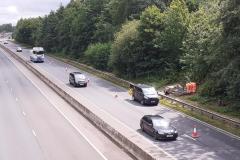
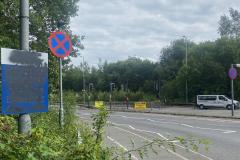
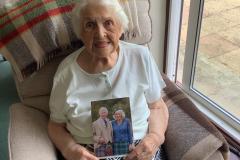
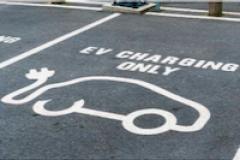

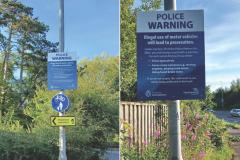

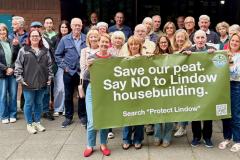
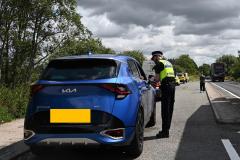
Comments
Here's what readers have had to say so far. Why not add your thoughts below.
After driving at night on the Wilmslow bypass lights, even with the reduced lamps, the number could still be cut furrther, only using them on the roundabouts. A saving in energy, money and pollution.
Imagine the atmosphere as 1 kilometre., 800 metres is nitrogen, then comes oxygen and the others. At the end of it all, carbon dioxide is less than 35 centimetres, which puts the so called problem, into a form normal people can understand. I believe this has shown in Australia the futility of all this expense for very little difference.
So coming back to the council, lets get some real saving done, without shutting down old folks homes etc.
Why should we pay for councillors to have Blackberry phones, which are being used for private use, why should we pay for all their broadband and computer connections. They should be paying something back, as would any normal business man, After all I hope the Inland Revenue is charging them for thr free use
As regards carbon footprint, the government has told councils that they have to reduce carbon emissions. I think it would be useful if Wilmslow's Nobel Prize person, Professor Geoff :Levermore, could comment, as he worked on Al Gore's report for the UN, and I believe he knows rather more than most of us! Watching the way the weather has gone to extremes across Britain and the world seems to me to be an indicator that there is something going on in the atmosphere that is not good for our long term future.....
On the other hand, we could always agree on the expense and dubiousnous of Blackberry phones - or could we?